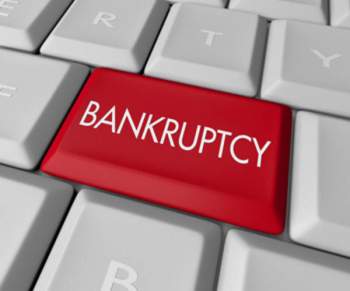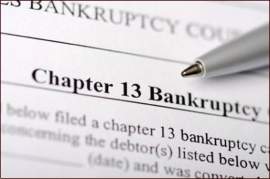
Connecticut Bankruptcy

A Brief Introduction to Connecticut State Bankruptcy Law
Filing for Connecticut Bankruptcy
The Connecticut District branch of the United States Bankruptcy Court is located at 450 Main Street in Hartford. Additional offices are found in Bridgeport and New Haven. Filing can be done by mail and also electronically for attorneys only.
Though all businesses filing for bankruptcy are required to have legal representation, the same is not true for individuals. Yet given the complexity of the laws and the dozens of forms required, it is highly recommended that representation be sought. The Connecticut Bankruptcy Court will even assist individuals in applying for a pro bono attorney for Chapter 7 and 13 filings. See the Courts in Hartford, Bridgeport, or New Haven to learn more.
Be aware that one of the forms you will be required to show is a certification of completion of a credit counseling program. This Counseling must have taken place within 180 days before filing for bankruptcy. If you haven’t yet had counseling, look at this government approved list at the Department of Justice website here:
The forms you are required to turn in to the court to file for Connecticut bankruptcy are called a petition packet and are available at the court for a small fee. Those required by local law are available on the Connecticut Court website, and a checklist of the many federal forms is available here.
Corporate Connecticut Bankruptcy
These are the two Connecticut bankruptcy options that businesses unable to pay down their debt are recommended to look into:
• Chapter 11 Bankruptcy: This is the less severe of the two Colorado bankruptcy options for businesses. It means that the company is not currently profitable but it may one day become profitable. Toward that goal, the court works with the filing business on reorganizing its corporate structure and creating a payment plan that will dictate in a reasonable manner how the business, which will continue to operate, can pay off its debt.
• Chapter 7 Bankruptcy: This Connecticut bankruptcy option should only be considered by businesses who need drastic solutions to their companies’ debt problems. The business is shut down and operations ceased after the judge assesses what the company’s assets are. These assets are then liquidated and the money that is raised by doing so is put to the creditors.
Personal Connecticut Bankruptcy
Individuals also often need to file for personal Connecticut bankruptcy. Here are the options available to them:
• Chapter 7 Bankruptcy: As with corporate Connecticut bankruptcy’s version of Chapter 7, this entails the court possessing your assets and selling them in order to pay off debts. Only individuals earning under the median income for Connecticut, or who qualify based on the Connecticut Means Test, are able to file for Chapter 7 bankruptcy. You should particularly inquire about it if most of your debt is credit card based.
• Chapter 13 Bankruptcy: As with Chapter 11 Corporate bankruptcy, this involves the restructuring of assets and a payment schedule. Here, the payments are taken out of an individual’s disposable income. (Those without disposable incomes usually qualify for Chapter 7 bankruptcy.)
• Chapter 11 Bankruptcy: This is a very rare type of bankruptcy for an individual and not a corporation to file under. They must have a large income to do so.
Tax Debts
Few individuals manage to solve their tax debt problems by filing for bankruptcy, since most tax debts are exempt from bankruptcy laws. Contact a Connecticut bankruptcy lawyer and see if they know of any ways to help you with your particular tax debts.



















